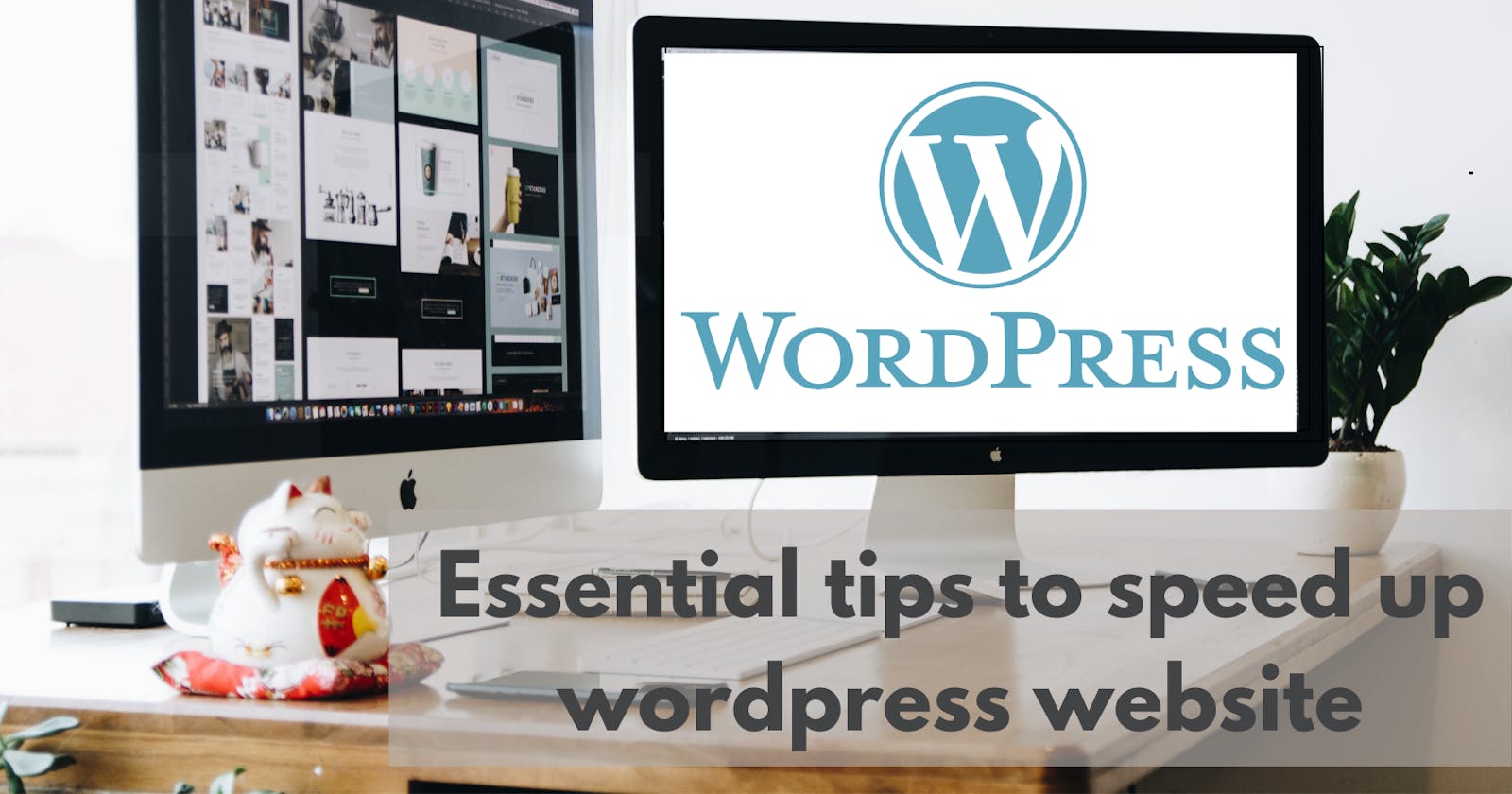A slow WordPress website is always a bad thing. No matter how well my designs were, if my client's site took too long to load I wouldn't be happy.
While developing a WordPress website, we all have to face the problem of speed. WordPress websites often take forever to load. Not everyone may not notice it but search engines do. Studies have shown that faster loading websites convert better and are less likely to be penalized by Google.
When it comes to growing your website, speed is of the essence. So you should create pages that are both quick and easy to load. So many newcomers make the mistake of placing burdensome images and videos on their site. Rather than providing your readers with helpful content, you're causing them frustrations such as slow page load times and interrupted sessions.
You can do almost anything with it, but some developers seem to take it a bit too far, and don't optimize the code. And since the default speed of a WordPress website is abysmal, speeding up your WordPress website can be an easy way for you to stand out of your competition.
So let’s unfold some useful tips that can make your website faster:
1. Choose a reliable WordPress hosting provider
Choosing a reliable WordPress hosting provider is one of the most critical decisions you can make to determine the future of your site. There are many web hosting providers available and they all vary in price, reliability, features and customer service.
By choosing a reliable WordPress hosting provider, you can ensure that your site loads quickly and runs smoothly for visitors who may be on slow connections or using mobile devices. You can also take advantage of advanced security features like DDoS protection to keep your site safe from malicious traffic, and automated backups to prevent data loss in case something does go wrong.
2. Optimize your images:
Images are a vital part of any web page, but they can also significantly contribute to the overall file size. If not optimized correctly, images can slow down your site and prevent users from visiting other pages on it.
By optimizing your images to load faster, you can help improve the user experience and increase traffic to your site.
Here are some tips you can follow to optimize images.
- Use the right format for your photos
- Crop and resize your images
- Compress your images
- Replace images with W3.CSS effects where possible
- Use sprites to consolidate multiple images
- Use a CDN (content delivery network)
- Reduce image clutter and remove unnecessary image metadata
3. Reduce your reliance on plugins
The number one way to speed up your WordPress site is to reduce your reliance on plugins. Plugins are great tools, but every one of them increases your page load times by increasing the amount of code that has to be loaded every time a page loads.
Many plugins are poorly written, bloated, and add a lot of code that doesn't need to be there. The best plugins keep the code lean and only add extra functionality when it's needed.
We recommend you install as few plugins as possible. Use a plugin only if it's essential to your website's functionality or design.
4. Clean up your database
Cleaning up your database is one of the easiest ways to speed up your website. A slow website can cause visitors to become frustrated and leave. The reason behind a slow site could be a bloated database. If you’re not regularly cleaning up your database, you may have old data that’s no longer necessary.
Cleaning up your database will improve the overall performance of your site, but there are other benefits as well.
5. Use a good caching plugin
WordPress caching plugins are very effective in making your website load faster and giving your visitors a better user experience. A good cache plugin will significantly improve your website speed and performance.
Using a WordPress cache plugin such as WP Super Cache or W3 Total Cache , is the quickest way to improve the performance of your website. It works by creating a static version of your dynamic WordPress site and serves that to users instead of processing the comparatively heavier (and more expensive) WordPress PHP scripts.
Caching plugins work by creating a static version of your website pages and files and serving them to visitors instead of dynamically generating the page each time someone visits. Cached versions are stored locally on a server or CDN (content delivery network). This makes it easy for visitors to access content, because they are served cached versions almost immediately rather than waiting as the site builds itself.
Conclusion
With these steps, you can speed up your website. Since WordPress is installed on the majority of websites, it's good practice to make them as quick as possible. The faster they are, the better your user experience will be and will be useful to rank up website.

